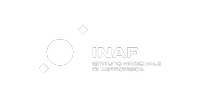ECOGAL
ECOGAL - Understanding our Galactic ecosystem: From the disk of the Milky Way to the formation sites of stars and planets
Abstract: Stars and planets are born from a large reservoir of diffuse gas and dust that permeates the Galaxy, the interstellar medium (ISM). The process is governed by the complex interplay of often competing physical agents such as gravity, turbulence, magnetic fields, and radiation. The system is organized in a hierarchy of scales, that link the disk of the Milky Way, to star-forming clouds, and eventually to protoplanetary disks, the cradles of planetary systems.
Stellar feedback creates highly non-linear feedback loops that strongly influence the dynamical evolution across the entire cascade of scales. We witness a paradigm shift in galactic astronomy and astrophysics. Approaches that treat the constituents of the Galaxy in equilibrium and consider the various scales in isolation reach clear limits. A comprehensive understanding of our Milky Way requires us to consider the Galaxy as one single complex ecosystem, where dramatically different environments coexist and where varying conditions are found for star and planet formation, and ultimately for life. Exploring and understanding the Galactic ecosystem as well as the physical processes that govern its evolution define the research activities of ECOGAL. Our primary goal is to build a unifying predictive model of star and planet formation in the Milky Way. Based on a unique combination of theoretical modeling and multi-wavelengths observations, we will trace the properties of planet-forming disks back to their environment in different parts of the Galaxy, determine the physical processes that regulate the birth to stars and determine their key parameters, deliver a well calibrated galaxy template which can be used to study systems in the distant Universe. To reach these goals, ECOGAL unites four key research groups in Europe at the forefront in observational astronomy, numerical astrophysics, instrument development, and astroinformatics, whose synergy enables transformative progress in our understanding of our Galaxy.
 ECOGAL has received funding from the European Union's Horizon 2020 research and innovation programme under grant agreement No 855130.
ECOGAL has received funding from the European Union's Horizon 2020 research and innovation programme under grant agreement No 855130.
Dettagli tecnici
PI INAF: Sergio Molinari
Struttura INAF: IAPS
Bando: ERC Synergy Grant 2019
Riferimento contratto n. 855130
Inizio: 01/09/2020
Durata: 72 mesi
Coordinatore: CEA (FR)
Partner:
|
ESO (DE) |
UHEI (DE) |
CNRS (FR) |
UNIMAN (UK) |

